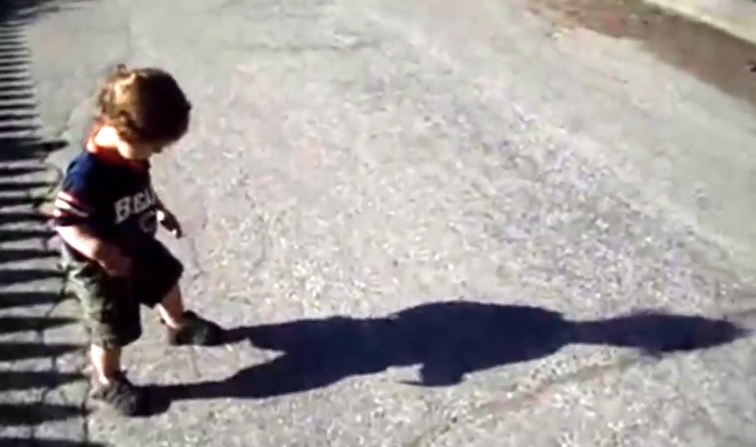Adoptees Who Self-Sabotage Relationships

Self-Sabotage and Relationships
Self-sabotage is when adoptees deliberately do or say things that cause problems in their daily life or undermine their success to achieve their goals. “Deliberately” doing something can be conscious or unconscious. For example, a child adoptee has feelings of abandonment, and exhibits it unconsciously by being mean to his adoptive mother. Or, adult adoptees deliberately, consciously sever adult relationships because they think the other person will leave them, as their birth parents did. Adult adoptees who self-sabotage usually suffer from chronic mistrust and unrealistic expectations. As a result, the adoptee adults are held back from the satisfaction of having a good relationship. They also miss the opportunity for individual growth.
Where Do Adoptees Get Their Ideas and Behavior?
Adoptees get their problematic ideas and behavior from the same place everyone else does—where the ideas and behavior began! As children, they were abandoned and rejected. An all but permanent sense of being unsafe has set in. Some learn to survive only, while others accept their loving adoptive parents, who help to reconstruct their ideas and behavior. These negative, learned ideas and behavior become motivators, or reasons to act, and they carry the adoptee through life, affecting decision making, social skills and development of relationships. This blog addresses specifically the adoptees who still carry with them the fears of abandonment and loss, rejection, loss of control, hurt, and intimacy.

Adoptees’ Fears
Fears—also conscious and unconscious– came from what happened to them as children. As I point out in My Mother My Daughter: A Memoir, Nancy Verrier in The Primal Wound: Understanding the Adopted Child (1991), states that adopted children who are severed early from their birth mother are often just as traumatized as older children who are separated. Their behavior is underscored by their fears, and their fears motivate their future behavior. For example, a child, who is really hurt by the mother’s abandonment and the father’s inattention, might develop low self-esteem and untreated depression. The child is left to his own devices, and he learns to control and protect himself; this is called survival. As an adult, the adoptee definitely might not have faith in someone being true or loyal to him; so, he doesn’t want to get into any permanent relationship. After all, he knows—based on his first experience– it’s going to head south. That is self-sabotage. It sounds like a vicious circle, doesn’t it?
As children, adoptees might demonstrate their fears by being deliberately aloof or mean to loving adoptive parents. Not until the children understand that the adoptive parents are there for them and will not abandon or deliberately hurt them, will they stop that behavior. The children need to feel they are again worthy of someone’s love, and the children must also begin to feel confident. (I admit that if the best parents in the world are not good communicators, it might be harder for the child to make that turn for the better.)
By the way, I wouldn’t be surprised if some adoptees think that love equates to hurt; then, their obstacles to successful relationships become even greater.
Symptoms of Adoptees Who Sabotage Relationships
I thank Nancy Verrier, a psychotherapist, author and lecturer, for divulging some of the symptoms of adoptees who are likely to sabotage their relations: symptoms of rage, self-blame, hopelessness, despair, detachment, avoidance, and denial. These reactions became instinctive.

With self-reflection, the adoptees can see these symptomatic patterns. The adoptees will hopefully also see their levels of trust, self-confidence, and self-expression, and willingness to depend on others. Not until the adoptees are willing to undergo this introspection, will they be able to have successful relationships. Not until they accept the need for introspection, will the adoptees stop sabotaging their relationships.
Solutions for the Adoptee Who Self-Sabotages
First, you should never make a decision that is based solely on fear. For example, if you love adventure, you will decide not to bungee jump just because you are afraid the harness and rubber cord won’t hold, especially if the sponsoring company has done the prepping a thousand times. You will trust the equipment holds, and enjoy the experience. So, too, in relationships, some of those fears might include that past relationships ended poorly; the person you love might leave you; if you open up, the person might reject you, and any other fears that were developed because you were abandoned as children. I repeat, you should not make a decision based solely on fear.
Two other reasons to not make a decision based solely on fear; it can show your fear of failure and a need for control. You then fall back into your vicious cycle.
Second, no relationship is perfect. Even the best relationships have problems. So, dump the idea of meeting a knight in shining white armor or a Cinderella. Remember that conflict in a relationship can be a growth opportunity. Give the relationship a chance, and then use common sense, and not your fears, to determine if the person is a good fit. And remember, don’t do what’s easy; sometimes it’s easier to walk away than to deal with the problem; that’s not a good solution.
Third, know yourself. Read this article a hundred times, and if the shoe fits, wear it. Start the healing process and recognize that you are a good person who deserves healthy relationships. But I warn you, it will take persistence and courage.
Finally, if you need help to understand yourself, step up and see a cognitive-behavioral therapist. If you’re having a difficult time separating reality from perception, it’s okay to get help. Again, that step might take a lot of courage, but in the long haul, it will be worth having that feeling that you can trust yourself to have a relationship.

The process is called attachment regulating behavior or regulating the attachment. We push away then pull back the person we are attached to seeking a safe emotional distance. It manifests as arguments power struggles emotional cut off. It will eventually destroy the attachment.
Thak you for your comment. Is that regulation a symptom of wanting to be in control or is it a result of not knowing ourselves well enough?